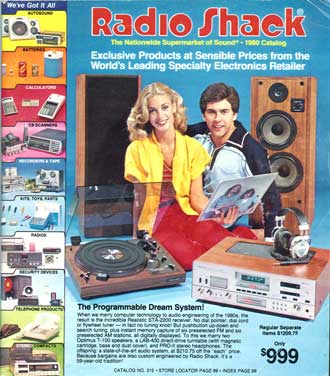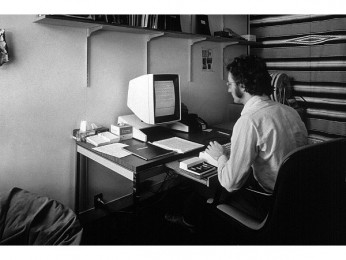 On paper, the electronics giant Radio Shack should have been one of the success stories of the electronics industry – however this week it announced its latest quarterly loss, $119.4 million, and that might mean that it is going to have to shut.
On paper, the electronics giant Radio Shack should have been one of the success stories of the electronics industry – however this week it announced its latest quarterly loss, $119.4 million, and that might mean that it is going to have to shut.
The company has been trying for nearly 20 years to turn itself around and has not made money for the last ten years.
But Radio Shack should have been a poster child for success. It sat at the heart of the electronics revolution and while it could have done really well, it didn’t.
The company was founded in 1921 and sold radio parts and surplus supplies by outlet and catalogue. It was out of cash when in 1963 it was bought by Tandy, a leather retailer.
It expanded until Radio Shack became the place for all things related to electronics, during the CB radio craze of the 1970s it was the leading retailer of CBs. In 1977, the company had introduced one of the first mass-produced computers, the TRS-80, and initially outsold Apple using the power of its retail channel and its thousands of locations.
As the 1980s arrived it should have been king of the computer revolution but it was killed off as IBM and Dell delivered more powerful computers through different channels.
It phased out its computer business in 1993 along with its circuit board business, then its mobile phone business was shuttered.
The company tried new stores like Computer City to sell computers, Energy Express Plus to sell batteries, Famous Brand Electronics for refurbished electronics, McDuff and Video Concepts for audio and video. All tanked and had to be closed or flogged by the late 1990s.
It was still the place to go for gear until Best Buy began to capture the bulk of the electronics business. RadioShack remained largely your local stop for electronics gear. The problem was that most of the equipment became cables and ancillary things to make the computers go.
It failed to enter the mobile business and any hope were killed off when smartphones arrived.
In what was seen as a last gasp RadioShack tried to rebrand itself in February with a slick $4 million Super Bowl commercial. But it is still a company without a real purpose.
A plan to close about 1,100 stores was halted by RadioShack’s current lenders. And while RadioShack’s biggest shareholder, the hedge fund Standard General, is rumoured to be in talks to provide new financing, the question would then become whether RadioShack’s latest attempt to leverage its name by adopting cleaner and brighter stores could be pulled off.
What went wrong according to the New York Times was that RadioShack suffered from poor, often overpaid, leadership, which could not focus on a single plan.
Radio Shack tried lots of different things but never really committed to one long enough. Radio Shack has branded itself well but could not do anything with that.
 The code that inspired generations of computer nerds has been made public by the Computer History Museum in Mountain View.
The code that inspired generations of computer nerds has been made public by the Computer History Museum in Mountain View.





